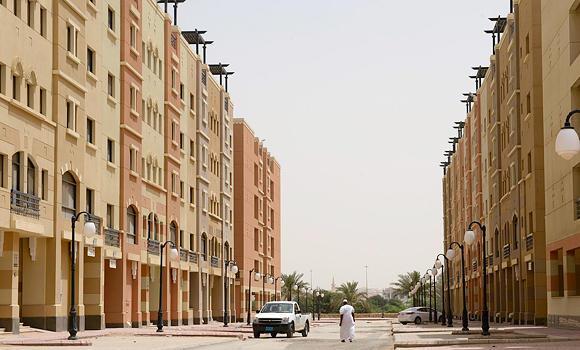
Shoura OKs national housing plan
The Shoura Council has approved a national plan to help widows, orphans and people with special needs find housing facilities in the Kingdom.
Various social service organizations in the Kingdom had been demanding that the government provide accommodation to those who cannot afford it.
The decision of the council was a sequel to a report submitted by its housing committee which has advocated for active participation of the private sector. It was pointed out that the Kingdom needs some 257,000 housing units in the next five years.
The council insisted that houses should be given to those widows, orphans and people with special needs who do not have bread-winners.
It also urged the Housing Ministry to evaluate the demand for accommodation once in five years instead of a decade as is the current practice.
There is a growing demand for housing since there is a growth of expatriate population by about 1.5 percent.
It was also pointed out that 80 percent of the local families cannot afford to buy houses.
Last week, the Housing Ministry said it was working to provide more residential homes for Riyadh residents. It also said that the houses will be in accordance with the different sections of society in Riyadh, which has the largest number of population.
As of last year, the population in Riyadh touched 4.9 million, 68 percent of whom are Saudi.
The ministry said it had stepped up efforts to provide residential homes in various cities and provinces in various regions of the Kingom.
The Housing Ministry also announced that 84 percent of the Riyadh housing projects have been completed in the Saudi capital.
The projects are in 5 million sq. meters of land located west of the King Khaled International Airport (KKIA).
These include 2,242 plots of land with infrastructure, water networks, electricity, communication facilities, in addition to 606 apartments.
“These will be allocated to qualified beneficiaries who have earlier applied for residential homes,” the ministry said.
This is part of a project that provides for the provision of 2,848 housing units that include integrated facilities for qualified applicants.
The ministry said that these residential homes will be followed up with other projects in the near future, in light of strengthening its partnership with the private sector.
“The partnership aims to come up with other options to meet the increasing demand for residential homes,” the ministry said.
Such options, it added, could include the construction of high-quality condominium units, which are popular in other countries.


























